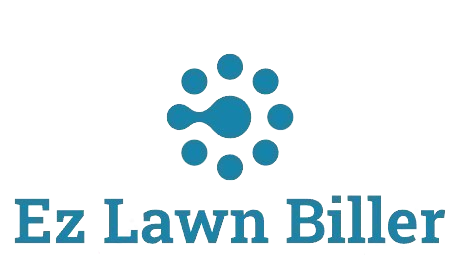Finding the right balance in compliance can be challenging for many businesses. Avoid common pitfalls and stay compliant with our expert tips.
Avoid These Common Stay Compliant Mistakes
Maintaining compliance within a business is crucial, yet it can often feel overwhelming. Many companies fall into the trap of common mistakes that threaten their operational integrity and legal standing. This blog post aims to illuminate the common pitfalls businesses encounter regarding compliance, offering insights on how to avoid them. We will explore various aspects of compliance, from documentation to regulatory understanding, and provide actionable tips to enhance your operational practices.
Compliance is not just a set of rules; it’s a framework that ensures businesses operate within the legal boundaries set forth by governmental and industry-specific regulations. In today’s complex regulatory environment, companies must be vigilant in avoiding compliance-related mistakes that can lead to costly penalties or even legal action. This article will guide you through the most common errors and how to sidestep them, ensuring that your business remains compliant and operates smoothly.
Adhering to compliance regulations is essential for maintaining your reputation and trust with clients. However, the landscape is ever-changing, and misunderstanding or misapplying regulations can lead to significant oversights. From not keeping accurate records to failing to train employees adequately, we’ll delve into these issues and provide practical solutions.
1. Neglecting Proper Documentation
One of the most significant compliance mistakes businesses make is neglecting proper documentation. Inaccurate or incomplete records can create serious problems during audits or investigations. Regulatory agencies require evidence that companies follow compliance standards, and without proper documentation, it can be challenging to prove adherence.
For instance, a lawn care business might fail to maintain service logs that document the treatments performed on clients’ properties. This oversight could lead to disputes with customers or penalties from regulatory bodies. Utilizing a reliable lawn service software can simplify this process by automatically tracking services and generating reports, reducing the risk of documentation errors.
Make it a practice to regularly review and update your documentation processes. Ensure that all team members understand the importance of accurate record-keeping and that they have the tools they need to maintain compliance efficiently.
2. Failing to Stay Updated on Regulations
Regulations can change frequently, and failing to stay updated is a common mistake that many businesses make. Businesses often assume that once they have established compliance practices, they can maintain the same systems indefinitely. However, this is a dangerous misconception.
For example, a lawn company might be unaware of new environmental regulations affecting pesticide use. Without adapting to these changes, the company risks non-compliance and potential fines. Regular training sessions, subscribing to industry-specific newsletters, and participating in relevant workshops can help ensure your team stays informed about the latest regulations.
Additionally, consider appointing a compliance officer or team responsible for monitoring regulatory changes. This proactive approach can save you from costly mistakes down the line.
3. Inadequate Employee Training
Another prevalent mistake businesses make is inadequate employee training related to compliance. Employees must understand the compliance requirements relevant to their roles to uphold regulations effectively. A lack of training can lead to unintentional violations that could have been easily avoided.
For instance, if employees in a lawn care company do not receive training on proper pesticide handling, they may inadvertently misuse products, leading to safety violations. Creating a comprehensive training program that includes regular updates and assessments can help ensure that your team is well-versed in compliance matters.
Utilizing a lawn service app can also aid in training efforts. Many software solutions include training modules that can be accessed by employees at their convenience, making it easier to stay compliant.
4. Ignoring Client Communication
Clear communication with clients is crucial for compliance, yet many businesses overlook this aspect. Failing to inform clients about changes in services, pricing, or compliance standards can lead to confusion and dissatisfaction. Moreover, it can create legal liabilities if clients are not kept in the loop.
For a lawn care service, this might mean not communicating new safety protocols or changes in service schedules. Regular updates and transparent communication build trust and ensure that clients understand their rights and responsibilities. Consider implementing automated notifications for clients regarding service updates or compliance changes using your lawn billing software.
Establishing a feedback loop where clients can voice concerns will also help you stay compliant. Listening to their feedback can provide insights into your services and potential compliance issues that may arise.
5. Overlooking Internal Compliance Audits
Internal audits are a vital part of maintaining compliance, yet many businesses neglect this essential practice. Regular audits help identify gaps in compliance processes and ensure that your practices align with regulations. By overlooking internal audits, you risk running into compliance issues that could have been caught early.
For lawn care businesses, conducting internal audits allows you to review employee practices, records, and service documentation systematically. This process can highlight areas needing improvement and ensure that your operations align with current laws and regulations.
Using a service company software can streamline your internal audits by providing tools for tracking compliance metrics and generating reports easily. Implementing a regular audit schedule creates accountability and demonstrates your commitment to compliance.
6. Relying Solely on Outsourced Services
While outsourcing can be a valuable strategy, relying too heavily on external services for compliance can lead to significant oversights. Many businesses assume that outsourcing their compliance responsibilities shields them from liability, but this is not the case. Companies must remain engaged and knowledgeable about compliance matters, even when they hire external experts.
It’s vital to find a balance between leveraging outsourced services and maintaining internal oversight. For example, while a lawn care company may outsource its accounting, it should still have an internal understanding of compliance issues related to financial reporting. Regular communication with outsourced providers ensures that you stay informed of any compliance updates and maintain control over your operations.
Remember, compliance is a shared responsibility. Even when utilizing external resources, you must ensure that your team is educated and empowered to uphold compliance standards.
Conclusion
In conclusion, avoiding common compliance mistakes is crucial for maintaining the integrity and legality of your business operations. By prioritizing proper documentation, staying updated on regulations, providing adequate employee training, fostering clear client communication, conducting regular internal audits, and balancing outsourcing with internal oversight, you can significantly reduce your risk of compliance issues.
Compliance is not a one-time effort; it’s an ongoing commitment that requires diligence and awareness. As you navigate the complexities of compliance, consider utilizing tools like EZ Lawn Biller to streamline your processes and ensure you remain on the right side of the law. Stay proactive, informed, and engaged in compliance matters to protect your business and foster trust with your clients.




